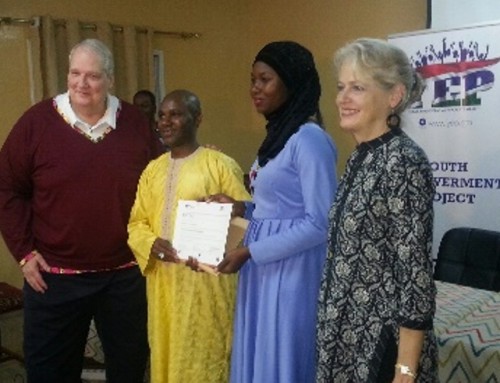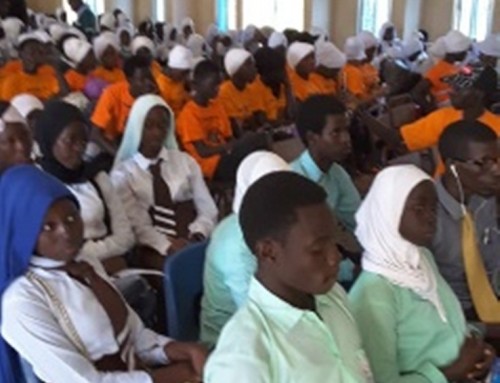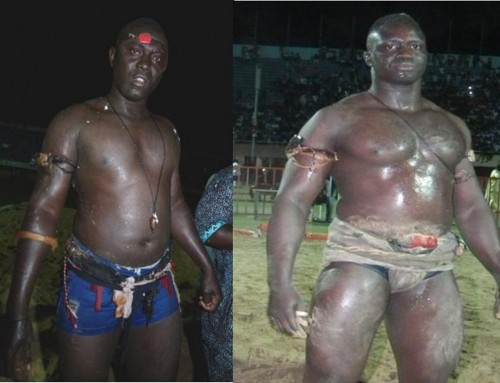A youth summit of more than 100 young Gambians has been told by an Islamic scholar that the practice of female genital mutilation is not Islamic. Hama Jaiteh told the Muslims gathered at the first youth summit on female genital mutilation (FGM) in Banjul, Gambia, that Islam was being used to “shield an evil intention
The event was arranged to help build up a legion of young people ready to tackle the practice across the nation.
Taking on the religious arguments used to justify FGM – a procedure that can create lifelong mental and physical problems for the women subjected to it – was key to altering preconceptions and practices across the country, where almost 80% of girls were cut as children, Jaiteh said.
Speaking at the youth summit – a two-day event being co-funded by the Guardian, and The Girl Generation, a consortium funded by Britain’s international development department – Jaiteh said FGM was not justified by either the Qur’an or the sunnah or hadith (traditions and sayings of Muhammad).
Directing her words to “venerable so-called Islamic scholars” Jaiteh said: “There is no valid hadith they can bring to support their claims […] he who created a woman knows the benefit of that thing there, leave it. Let everybody go back and read, conduct research. Islam is Islam, it is here to preserve the interests and rights of the woman. This FGM is completely against Islam.”
Jaha Dukureh, the face of a Guardian campaign to raise awareness of FGM in the US, who has taken her campaign back to her home country, said equipping young people at the event with religious arguments was vital in the battle to end FGM within a generation.
“Almost everyone who practises FGM believes it is a religious obligation, and this religious scholar has told us that this is not the case,” she said.
Jaiteh used the example of altered public health practices caused by the Ebola outbreaks to show that traditions could change, and quickly.
“Shaking hands is an obligation in Gambia,” he said. “But now Ebola has led to that practice being curtailed. Shaking hands is obviously therefore simply a cultural practice – when it is discovered that culture can lead to harm, it is stopped. Islam is here to safeguard and repel whatever causes harm.”
The impassioned youthful audience engaged in the detail of Islamic argument, and some young women urged others not to be afraid to challenge practices and laws made without their consent.
“Women were not there when these laws were being made for them,” said Ruqayah Sesay, attending the summit. “So much injustice is being done to women in the name of Islam and we are afraid to challenge it. But we must not be afraid to challenge, we need to stand up and be part of making these laws ourselves.”
Amie Bojang-Sissoko, a veteran anti-FGM campaigner, who has worked with the Gambian feminist organisation Gamcotrap for more than 20 years, said she hoped young people would go directly to the Qur’an to arm themselves with the facts.
She said: “If the prophet was said to love and care for his children, why can’t we learn from him? If he is this type of person why would he condone cutting a female body in the name of Islam? I don’t think he would.”
Bojang-Sissoko said that the youth summit had given new energy to the campaign to end FGM in Gambia, adding that she hoped young people would continue to push for a law that would make FGM illegal. “I am so proud to be working with these young people. At one point I felt we were losing our activism, but now I feel it has been re-energised,” she said.
via Muslim youth summit told female genital mutilation is not part of Islam | World news | The Guardian.





